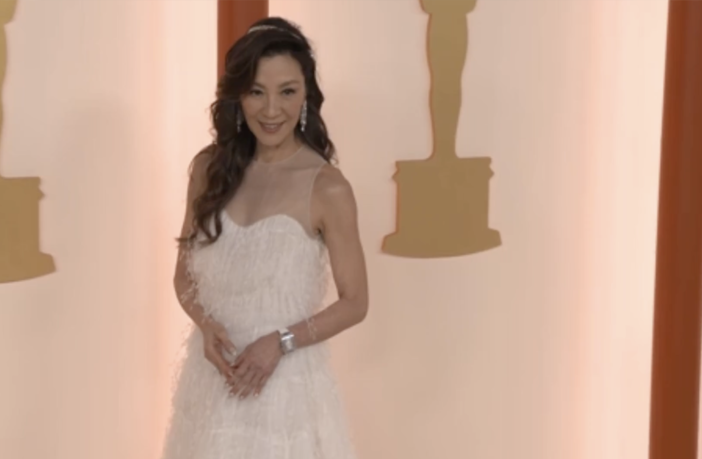Last Updated on March 13, 2023 by BVN
S. E. Williams
I’m old enough to remember how it felt when Sidney Poitier won the Oscar for Best Supporting Actor for his performance in Lilies of the Field in 1963.
Poitier was not the first Black to receive an Oscar nod, however. That experience went to Hattie McDaniel 24 years earlier. McDaniel was acknowledged as Best Supporting Actress in 1939 for her role as Mammy in the racist classic, Gone With the Wind. A role that by today’s standards is considered a degrading caricature in a racially insensitive movie. At the time, however, it was heralded as a breakthrough moment for Blacks.
Michelle Yeoh with her win as Best Female Actor in a Leading role by the Screen Actors Guild Awards. (source: facebook.com/MichelleYeoh).
It took another 39 years for Blacks to earn Best Actor and Best Actress Oscars. Miraculously, it happened in 2002, when Halle Berry and Denzel Washington took home Best Actress and Actor awards, respectively. Like McDaniel, Berry’s award winning role in Monster’s Ball was criticized by some as degrading, calling out its stereotypical depiction of Black women because of the movie’s explicit love scenes.
On Sunday, March 12, 2023, Asian American actors broke barriers at the 95th Oscars. It was a long overdue moment in movie history, in Asian history, in American history, a moment worthy of acknowledgement and celebration.
Performances in the movie Everything Everywhere All at Once, resulted in a Best Actress award for Michelle Yeoh (only the second person of color to win this in this category, Berry being the first) and a Best Supporting Actor award for Ke Huy Quan.
“An inclusive environment not only ensures equitable access to resources and opportunities for all, it empowers individuals and groups to feel psychologically safe, respected, engaged, motivated, and valued.”
Handshake.com
According to census projections, 2043 will be a demarcation point in American history, when whites will become a minority of the nation’s population. Analysis further indicates that by 2050, whites will only comprise about 47 percent of the U.S. population, while communities of color combined will form a solid 53 percent majority.
Reflecting on the Oscars, I believe whenever a person of color achieves a breakthrough, it is a victory, a step forward, a symbol of progress for all people of color, for all Americans. Some may argue, “It’s only the movies.” On one level, I certainly agree. But, in a broader sense, just as movies reflect culture, it also shapes popular culture by showing what is possible.
A more inclusive movie industry will hopefully create greater opportunities to tell authentic stories of, by and for the people who comprise the mosaic that is America, especially regarding it’s various ethnic groups . . . histories and stories that are waiting to be told.
Of course, this is just my opinion. I’m keeping it real.



